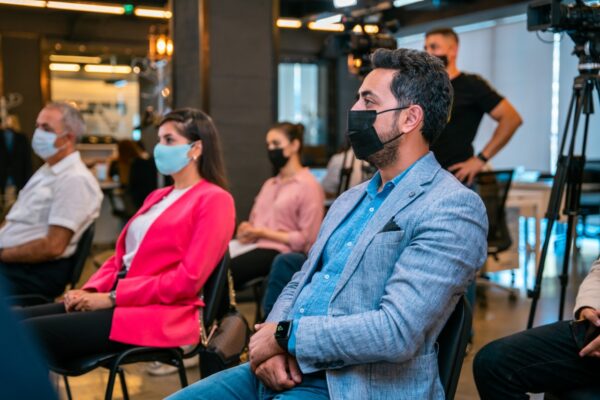Cyber hygiene cooperation platform to be established in Azerbaijan
Global pandemics COVID-19 continue to have a huge impact on the daily lives of vast numbers of people, who need to continue to work and study online due to isolation measures. Therefore, special emphasis should be on online safety and it is extremely significant to strengthen the cyber security. Along with the specialists, ordinary users also need to know the fundamentals of cyber security and follow cyber hygiene rules.
The B.EST Solutions Company signed contract with the “E-GOV Development Center” under the State Agency for Public Service and Social Innovations under the President of the Republic of Azerbaijan and the Special Communication and Information Security State Service of the Republic of Azerbaijan in the framework of Public-Private-Partnership Program, which is created to implement the national Cyber Hygiene e-Learning Course. The course is intended for the various governmental organizations and agencies, financial institutions, insurances, and universities with aim to create a safer online experience and eliminate the vulnerability to cyber-attacks.
The partnership will give a start to a series of the workshop, which will be provided by the Special Communication and Information Security State Service and by the “E-GOV Development Center” along with the B.EST Solutions Company. Within the scope of this project, the trainers will provide the latest instructions, recommendations, guidelines and solutions to lower cyber security risks based on international standards, national security requirements, organizational information security policies and best practices. In the framework of this project, more than 10000 people from public agencies, universities, financial institutions and private sector will benefit from this free online course, and apply their cyber awareness skills against the threats in the digital world.
The aim of this project to make people feel responsible after taking the test and to be aware that their poor cyber hygiene can cause a crisis with unpredictable consequences.
The mission is driven by reality: there are around 30 billion gadgets online, including smart watches and teddy bears as well as high technology equipment of large-scale production facilities and nuclear power plants. But it is already now that a criminal war is raging in the cyber space on the scale never seen before. For example, approximately 1,800 people are said to fall victims to cyber-crime every 60 seconds; every minute, 5,500 data leaks are believed to take place while losses of a total of 1 million euros are incurred by the victims.
The national Cyber Hygiene e-Learning Course is developed in cooperation with CybExer Technologies is a NATO-awarded Estonian cybersecurity company, which has a wide-ranging experience in providing and maintaining highly sophisticated cyber security training platforms with a special focus on cyber capability development, which are the key to successful delivery of a plethora of cybersecurity trainings and exercises aimed at ordinary users, technical responders and the very top of strategic leadership. CybExer Technologies’ capabilities and solutions have been used to conduct some of the world’s largest cyber exercises. It is significant to mention, that CybExer Technologies has created the world’s only e-learning platform, which uses simple questions to show any participant their personal cyber weaknesses, which could tomorrow result in an attack on the person or hospitals and factories or even the entire country’s economy.
Cyber Hygiene e-Learning Course is a web-based tool, which helps individuals and organizations comprehend how their own behavior could affect in a cyber threat incident in the form of hacking, data leak or attack. The tool enables the users to both learn and test their knowledge. Importantly, the solution provides individual risk profiles that can be aggregated to identify the risk level of a particular department or of the whole organization. Both the individual and the organization can then take the necessary steps to address the identified risk areas.





